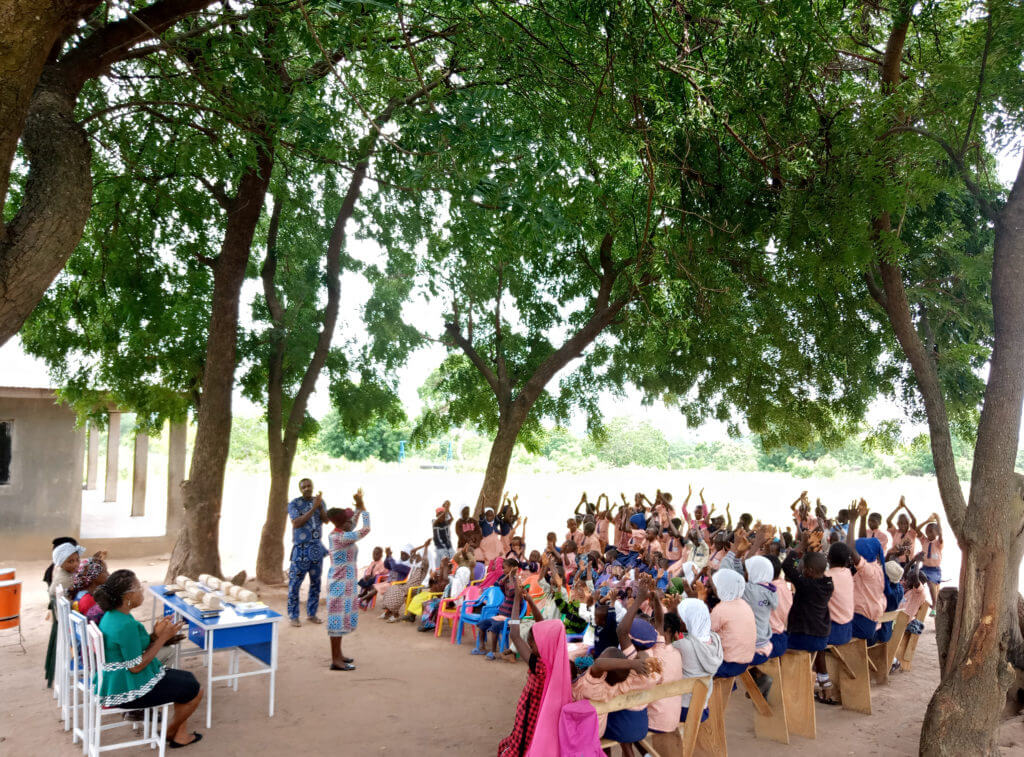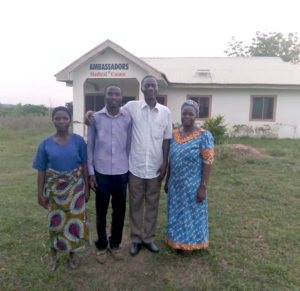On the wings of national service
Kate Azumah
 The official at the National Service Secretariat was baffled by the adamance of the two recruits. Why would anyone insist on posting to a remote village when a town with better amenities was available? Most recruits would have paid money for the offer. He even voiced his suspicion that the young men were spies.
The official at the National Service Secretariat was baffled by the adamance of the two recruits. Why would anyone insist on posting to a remote village when a town with better amenities was available? Most recruits would have paid money for the offer. He even voiced his suspicion that the young men were spies.
Michael and Eben were part of a long line of missionaries with Operation Serve Global (OSG). During six weeks of residential missions training, they had laboured in prayer for the Builsa community. They had imagined their ten-month stay and the impact they envisioned for Christ. An alternative posting, however attractive, was not the plan.
Operation Serve Global
OSG trains and sends young people as missionaries to the unreached while they do their National Service. In Ghana, National Service is mandatory for all graduates of tertiary institutions. The government dispatches thousands of them annually to serve in various sectors of national employment and pays them monthly allowances.
The Lead Coordinator for OSG, Mrs. Richess Okai, recalls, “The decision to send National Service persons was inspired by the Holy Spirit. The second factor was the need we saw in unreached communities: a lack of school teachers, the youth unfamiliar with the educational system, and no knowledge of Jesus Christ.”
OSG recruits potential National Service missionaries by organizing mobilization events in campuses. Upon completing their schooling, recruits enter the Potter’s House Training Institute. They are equipped with relevant tools to become effective missionaries and agents of positive transformation.
Since it began in 2012, God has brought 174 “legates” ̶ the special term for OSG missionaries. Some of them have served in Muslim communities. Legates have planted churches, raised disciples, and initiated vocational training and reading and writing clubs.
“Since our missionaries receive monthly allowances for their National Service, the burden of providing for their upkeep is not heavy[1]. Nevertheless, they still raise support for projects they decide to carry out on the field,” Mrs. Okai shares.
Pascal, an OSG missionary, was asked if doing missions this way was akin to robbing the government. “We are not forsaking our duties as government workers. We are rather encouraged to take it seriously and go a step further to initiate positive community transformation. This is not robbing the government. It’s rather helping.”
The Kingdom Projects
 “What God has made easy, we shouldn’t make difficult,” says Ps. Sola Adebayo of The Kingdom Projects (TKP) in Nigeria. “The Master did not say, ‘resign your job and go into the world’. He simply said, ‘Go into all the world and preach.’” With this conviction, he rallies Christian professionals, technicians, and artisans to reach unreached nations with the gospel.
“What God has made easy, we shouldn’t make difficult,” says Ps. Sola Adebayo of The Kingdom Projects (TKP) in Nigeria. “The Master did not say, ‘resign your job and go into the world’. He simply said, ‘Go into all the world and preach.’” With this conviction, he rallies Christian professionals, technicians, and artisans to reach unreached nations with the gospel.
TKP is intentional about this call and understands the need to provide platforms for every Jesus follower to engage in missions.
Where there is a will, there is a way, and TKP has found sustainable ways to train government-paid workers to serve as missionaries in their postings. This approach reduces the burden of raising personal support.
Ps. Adebayo describes other benefits too. Government-paid workers may have access to places that are inaccessible or hostile to traditional missionaries. The community more readily accepts them, and their government work opens doors otherwise closed to the gospel.
TKP’s Tentmakers Institute tailors missions training for those who combine it with their government work. Their trained missionaries have proved effective in evangelism, disciple-making, church-planting, missions mobilization, medical missions, and community development activities.
Ps Sola shares the story of Mudu*, a Fulani who came to faith through the ministry of TKP’s missionary-teachers. He listened regularly to the solar-powered Bible he was given. Upon learning about Jesus’ baptism, he requested to be baptized. The missionary-teachers gladly obliged, but they did so secretly, away from the prying eyes of a Muslim community.
A large part of the African church still needs to be mobilized for missions. For the few who catch the vision and sense the call to go, raising support remains a hurdle. Operation Serve Global and The Kingdom Projects have found a way to circumvent this by training and sending government-paid workers to join the missions force to the unreached.
Operation Serve Global
Facebook: Operation Serve Global Ministries
Instagram: OS Global Ministry
The Kingdom Projects
